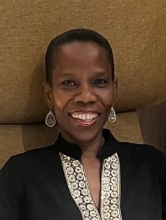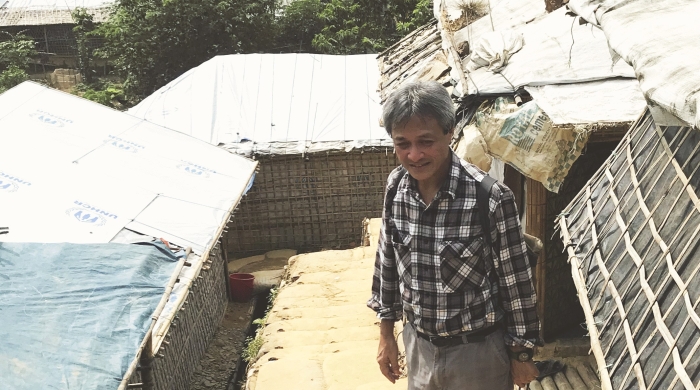The Power of Narrative: Climate Skepticism and the Deconstruction of Science (Oxford University Press, 2020) by NYU Steinhardt Professors Raul Lejano and Shondel Nero analyzes the narrative of climate denial by deconstructing its linguistic properties and persuasive power. Raul Lejano is a scholar of public policy who takes a relational approach to environmental knowing. Shondel Nero is an applied linguist whose research examines the politics, challenges, and strategies of educating students who write or speak in vernacular varieties of English. We interviewed them via email about their new book.
How did this book come about?
Raul Lejano: I've been thinking about the power of narrative analysis for a long time --even before I wrote about it in my first book, Frameworks for Policy Analysis (Routledge, 2006). Narrative describes how and why people think and act a little better than the rational actor model. With my colleagues, Mrill Ingram and Helen Ingram, I wrote about how social networks and their narratives are "co-constitutive" in The Power of Narrative in Environmental Networks (MIT Press, 2013). After that book, I felt a need to further explain how fringe, counter-conventional, alternative social networks persist in the world. I thought about the climate skeptical movement because, as an environmentalist, it's a topic that jumps out at me. (The book could have also been about an entirely different topic --anti-immigration, gun rights, covid-science-debates.) I felt that climate change required a book where narrative and discourse analysis is employed more deeply to make some important points; one being, that all these issues are, really, at their heart, founded on the same meta-narrative.

I felt a need to further explain how fringe, counter-conventional, alternative social networks persist in the world."
Shondel Nero: It was in spring 2018, and Raul and I had both been recently promoted to full professor in our department, environmental education and language education, respectively. While we were celebrating over lunch, Raul mentioned that he had started work on a book on climate change denial. He said that he was intrigued by the powerful and growing counternarrative to anthropogenic climate change that had been developing in the US and elsewhere, and was really curious to examine how a sizable minority of the public - ordinary folk who are not scientists - have been able to mount such a compelling narrative to counter what is ostensibly a matter of science.
He also told me that he had a collection of op-ed pieces from conservative media outlets that were questioning climate change (data show that most climate skeptics are conservatives), and needed someone who could look at the language and development of this narrative more closely. I’m trained as an applied linguist (someone who uses scientific methods to study the use of language in the real world) and what Raul was describing was right in my wheelhouse. Also, because climate change has become so politicized, I told him that the analysis of climate skeptical narratives called for a critical approach to language; hence, in addition to narrative analysis, I would use critical discourse analysis (CDA) - a research method that I’ve used in my own linguistic work. Raul was very happy to have me bring my linguistic expertise to bear on the collected pieces, and I was excited to collaborate with him on a project addressing a very current and controversial topic, and one that lent itself well to CDA.
The analysis of climate skeptical narratives calls for a critical approach to language."
What can we learn from studying the narrative of climate change?
Shondel Nero: We can learn that narratives of any kind are powerful, as we live a good portion of our lives through them. Narratives also give us a sense of belonging and our shared humanity and help us make sense of the world. But when narratives become ideological (as in the case of climate change), they pull us apart. They become less about the specific subject of the story, and more about asserting self and group identity and rights in a judgmental way, and about one’s absolute “rightness.” The language, semantic, and rhetorical properties of an ideological narrative reflect this dogmatic positioning. It is an “exclusive” narrative, not an inclusive one. And, as we discuss in our book, some climate scientists are also guilty of this absolute, exclusive language as well, which fuels the ideological tenor of the narrative. So, studying the language of the climate narrative can help us to identify, and, hopefully, stem the root causes of what divides us, and begin to change the social conditions, language, and rhetorical strategies accordingly and craft a different narrative that can unite us.
Raul Lejano: Yes, social movements (and narrative-networks) are created by "othering" language and that brings to life an alienating story about the other. Studying climate skeptical narrative helps us understand why the scientists' otherwise rational strategy of throwing more data, more research, and more consensus at the matter does not make much difference to the counter-movement. The genetic meta-narrative that lies underneath the discourse of climate skepticism, as well as immigration, 2nd amendment rights, etc., is born from the same foundational narrative. And this narrative, which is about social fracture and the extent of the socio-cultural-economic alienation many are feeling and experiencing, was never about the science of climate change.

Social movements (and narrative-networks) are created by "othering" language and that brings to life an alienating story about the other."
How does language/semantics illuminate the central issue surrounding the climate change crisis?
Shondel and Raul: Language is central to narrative, and, in this case, the narrative around climate change. The fundamental scientific argument around climate change is that in the last 100 years, the earth has been warming at an exponentially higher rate than it has in the previous 500 years. This warming has resulted in rising sea levels, more frequent, extreme weather patterns, and devastating consequences for our planet and lifestyles. Climate change scientists believe that human behavior has significantly contributed to this change because we have produced inordinate amounts of carbon emissions. But therein lies the rub. The first part of the claim states a fact; the climate is changing; the second part attributes the change to human behavior. That now enters the realm of cause and effect. If humans are the cause of climate change, then humans must change their behavior to fix it (e.g., retrofit your house with solar energy or drive a more fuel-efficient car). Science is now perceived as intruding on personal freedom. So, look at what has happened to the language….The scientific statement the climate is changing, which seems fairly innocuous, has given way to a slightly differently worded counter-statement from the skeptic, the climate has always been changing. The response nullifies the argument and also deflects blame from the individual. If climate change happens all the time, then it’s just a natural thing and people don’t have to change their behavior. Or, more to the point, people resent being told that they have to change their ways of life because of it.
I learned that a narrative, certainly an ideological narrative, doesn’t have to be true in any conventional sense. It just has to be compelling and true in the mind of the teller and the listener."
What surprised you the most about the language used by the climate skepticism movement?
Shondel Nero: What surprised me the most was the extent to which the now-infamous notion of “alternative facts” is real, especially in our ideologically divided society. In a sense, the postmodern idea of no absolute truth has been turned on its head. I learned that a narrative, certainly an ideological narrative, doesn’t have to be true in any conventional sense. It just has to be compelling and true in the mind of the teller and the listener. As I read and analyzed the texts, I was struck by how an “us vs. them” frame was underlying all of the pieces; each author/storyteller was convinced of the absolute rightness of their position and often questioned the motives and morality of the other side rather than their argument. The social media responses to articles were the most ideological and partisan, as they’re the perfect space for the echo chamber effect. As our sociopolitical environment has become more hyperpartisan, ideological narratives are on the rise, part of what we call a “genetic metanarrative” that reflect social fracturing and isolation. The language and rhetorical properties of this metanarrative are remarkably similar, whether it be about climate change or gun rights or now Covid or vaccines. So, in the end, it’s really not about climate at all.
Rau Lejano: One surprising thing is the extent to which this work on climate carries over to everything else. I am now getting used to bringing these analytic lenses to everything around me. Applying these lenses to COVID is almost too easy. Recently, I've begun reflecting on the ubiquity of othering speech in higher education, how persons of color are assigned their place through language, how ideological thinking abounds. A great way to analyze these phenomena and to spell them out is by expressing them as narratives.
And, lastly, it is surprising to arrive at new insights into the power of narrative. By now, the idea that narrative is important to society is frequently mentioned, to the point of being trite. But when you apply a narrative analytic method more deeply than just sketching out a plot, it is surprising what new insights you arrive at. The use of narrative in policy studies has really traditionally not been so deep, but collaborating with Shondel has allowed richer analysis.
Related Articles
Helping Refugees Adapt to Climate Change: An Interview with Professor Raul Lejano
Professor Raul Lejano and a team of NYU colleagues are bringing disaster preparedness workshops to Rohingya refugees living at the Bangladeshi/Myanmar border.



